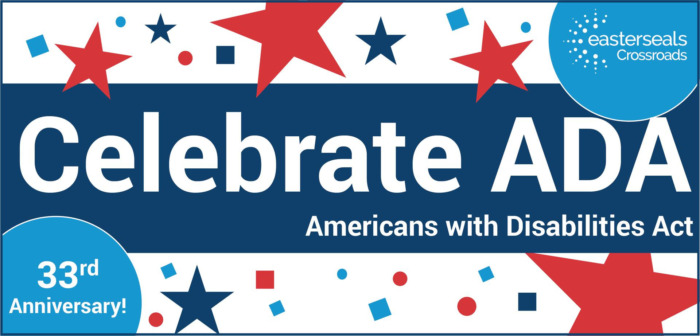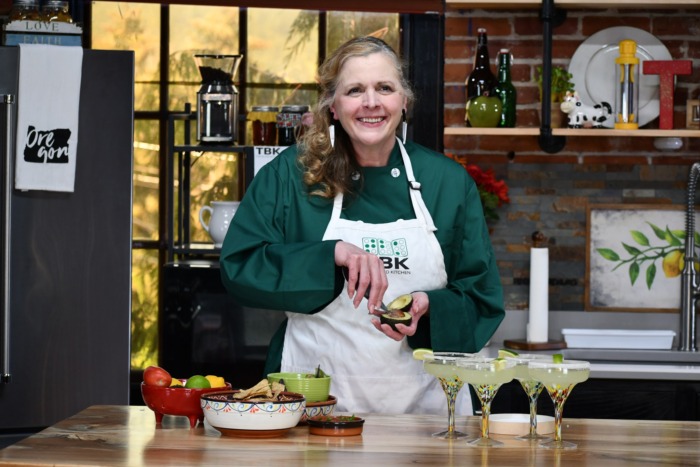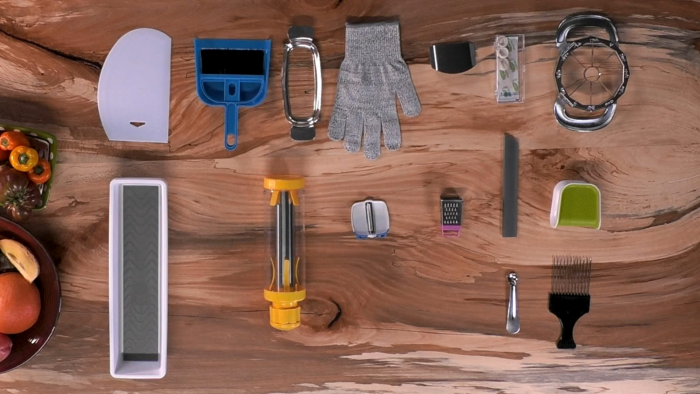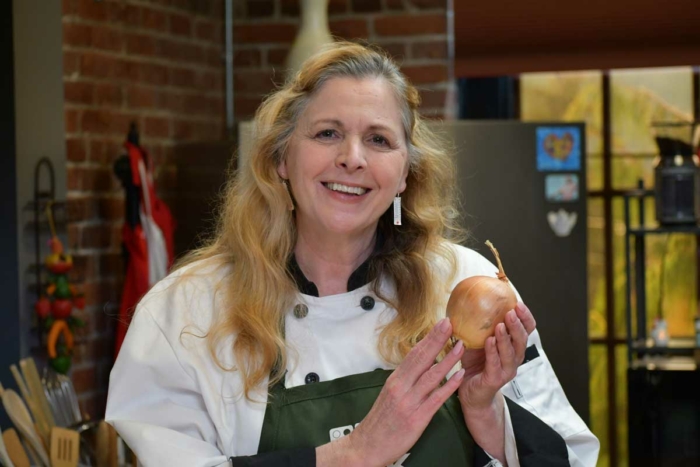
Today marks the 33rd anniversary of the date President George H. W. Bush signed the Americans with Disabilities Act into law. With its upcoming full-day training session, AT 101 & Tools for Everyday Living, Easterseals Crossroads will celebrate not only assistive technology, but the people who have made the world more inclusive of and accessible to people with disabilities.
“Many organizations, including Easterseals Crossroads, are celebrating the life of Judy Heumann, a disability rights advocate who passed away this year,” said David Dreith, president and CEO of Easterseals Crossroads. “As one of many, Ms. Heumann was instrumental in bringing the ADA into reality. This landmark legislation was the first to fully recognize the vital contributions of people with disabilities in all aspects of our communities by establishing standards for the inclusion and accommodation of people with disabilities. Over three decades later, we recognize that we still have work to do. People with disabilities continue to face significant barriers in the worlds of employment, transportation, education and recreation, and they are now leading the way in creating solutions that don’t just benefit people with disabilities — they benefit everyone! I’m reminded of something disability advocate Emily Ladau said recently at the National Press Club in Washington, D.C., ‘We invented the ability to work remotely.’ Easterseals Crossroads is proud to stand alongside the people we serve as we work toward a vision of 100 percent equity, access and inclusion for people with disabilities.”
Debra Erickson, a presenter in Easterseals’ training session, is a fellow advocate and innovator whose creation, The Blind Kitchen, came out of a COVID-induced period of remote working.
From the Kitchen to the Community

Due to gradual deterioration of retinal cells from retinitis pigmentosa, Debra found herself legally blind in her 20s and needing more assistance in her 50s. In a testament to the ADA, she was able to take classes through the Oregon Commission for the Blind, including what turned out to be a momentous cooking course that helped her carve out a new career.
Debra, who had previous experience teaching adults professional writing and peer-to-peer mediation, recalled that during the cooking class, “The lightbulb went on and I said, ‘I can teach this!’”
She went on to attend McClaskey Culinary Institute at Clark College, which modified its kitchen to safely accommodate her — another credit to the ADA. (Debra was the only blind student at the time.)
Just four days after graduating, a twist of fate landed her a job teaching the same cooking course at the Oregon Commission for the Blind that inspired her new career journey. Her former instructor broke her hip, thus needing someone to fill in for her, and Debra came through in the clutch, quickly fulfilling her goal of becoming a teacher.
Unfortunately, in March of 2020, COVID pushed her off that path when the Commission suspended her in-person classes. But remote working made The Blind Kitchen a virtual reality.
Through its website and videos, The Blind Kitchen provides accessible tools, tutorials and tips for low-vision and blind chefs like Debra.
As she says in the welcome video: “The very idea of returning to the kitchen after vision loss — with all of its hot foods, hot surfaces and sharp tools — can be daunting. I know, I’ve been there.”
Now, Debra adds, “Even if you don’t have vision loss, the kitchen is a dangerous place to be. Of course, the fear factor is so much higher in people with vision loss. But I’m here to show them that they can get into the kitchen safely and work in there independently — if they have the right tools and information.”
The Blind Kitchen is like an ever-evolving time capsule of everything Debra has learned and wants to share with others. It now has an inventory of more than 80 tools — not only for people with disabilities returning to the kitchen but for organizations who help them, like Easterseals Crossroads.
Dishing Out Cooking Tools and Tips

Among the tools Debra will showcase at Easterseals’ training session is a cut glove. Made of breathable, food-grade mesh material, it provides certified Level 5 protection — four times stronger than leather.
Another tool is a ceramic, specially weighted boil alert disk, which rattles inside of a pot when the content is boiling. The more it boils, the louder the disk clatters.
The auto measure spout dispenses exactly one tablespoon of liquid, allowing blind chefs to be precise and prevent messes.
But these tools are beneficial for any chef, regardless of their ability in the kitchen. As she says in her videos, at The Blind Kitchen, “everyone has a seat at the table” — a sentiment reflecting the inclusive spirit of the ADA.
Having a seat at the table makes a huge difference in the lives of people with disabilities.
“I speak to support groups, especially of older women, who say, ‘I have hope now. I didn’t know all of (these tools) existed,’” Debra said. “That makes me emotional because I’ve been there and thought, ‘How can I cook if I can’t see?’ But it’s possible.”

